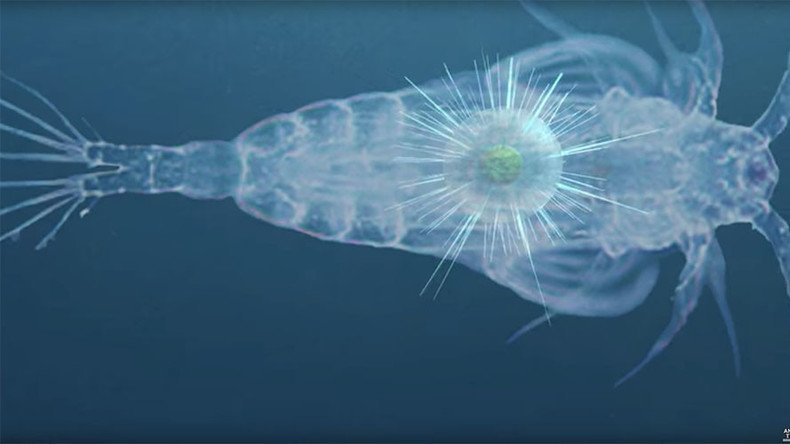Mystery of animals’ appearance on Earth solved by ‘pivotal’ study

The origin of animals on planet Earth has long been a mystery, however a new study, which examined 650 million-year-old rocks, claims to finally answer the age-old question.
A research team from the Australian National University (ANU) studied ancient molecules buried in the rocks and discovered that a very particular set of circumstances led to the origin of life on our planet.
It all started about 700 million years ago when the world was covered in ice, a period called “Snowball Earth.”
“The Earth was frozen over for 50 million years,” explains ANU Associate Professor Jochen Brocks.
“Huge glaciers ground entire mountain ranges to powder that released nutrients, and when the snow melted during an extreme global heating event rivers washed torrents of nutrients into the ocean.”
This abundance of nutrients triggered the key moment for the development of life on Earth – the rise of algae.
READ MORE: 400 million-year-old fish linked to human evolution
Dr Brocks said this extraordinary algae bloom kicked off a “revolution of ecosystems” which was “one of the most profound ecological revolutions in Earth's history.”
The extremely high levels of nutrients in the ocean, and cooling of global temperatures, created the perfect conditions for the rapid spread of algae.
This led to a dramatic shift where the oceans went from being dominated by bacteria to a world inhabited by more complex life.
The phenomenon was so critical that humans and other animals would simply not exist had it not taken place, the researchers point out.
"These large and nutritious organisms at the base of the food web provided the burst of energy required for the evolution of complex ecosystems, where increasingly large and complex animals, including humans, could thrive on Earth," Dr Brocks said.
The research is published in Nature, and the team’s findings will be presented at a conference in Paris next week.












